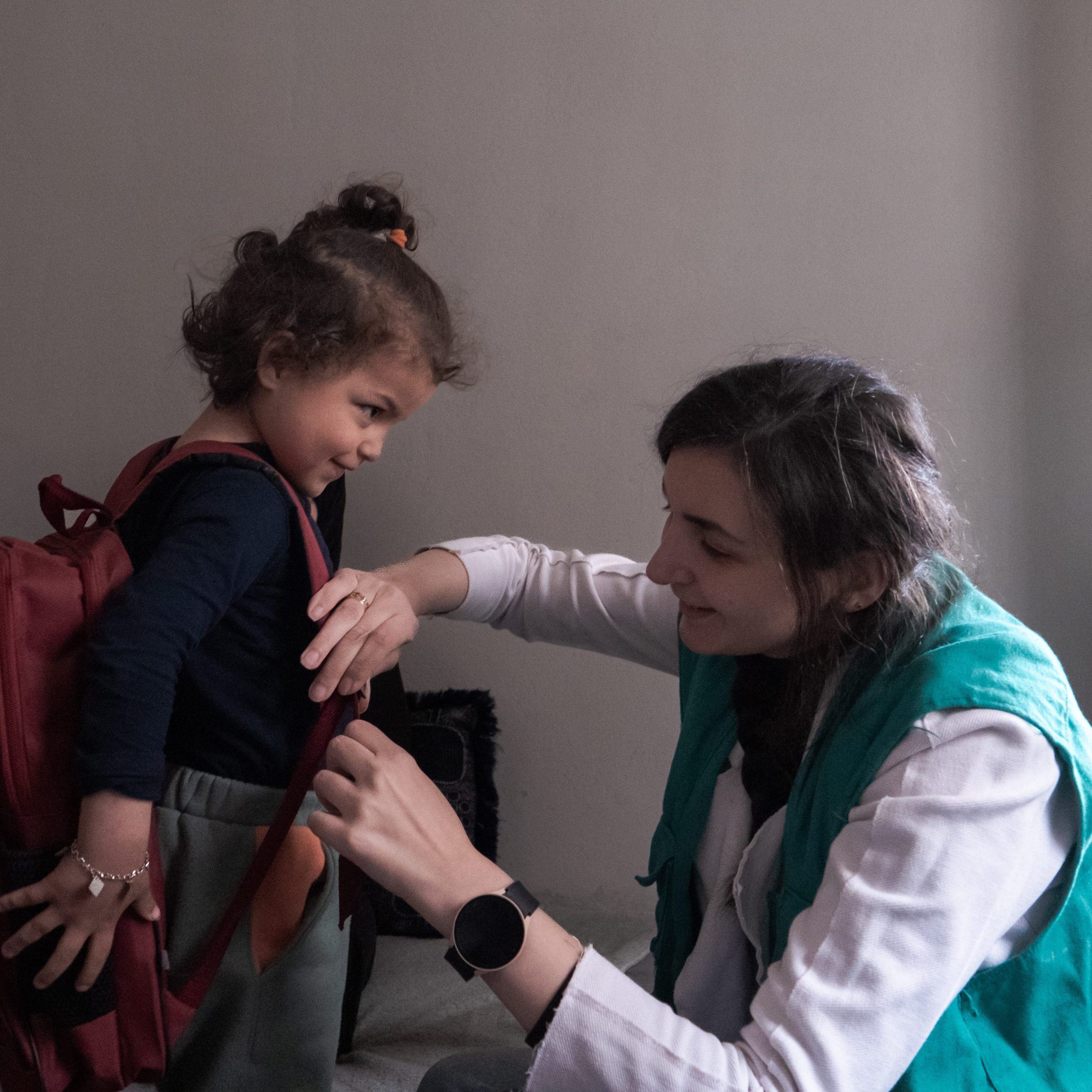The war, the COVID-19 pandemic, cholera and now an earthquake. 12 years after the beginning of the conflict in Syria there seems to be no peace for its population. A crisis within another crisis, in one of the worst humanitarian situations in the world.
At the end of February, a team from AVSI left Lebanon to go assessing, less than a month after the earthquake, the material, psychological and social needs of the survivors in Aleppo, situated just 100 km away from the epicenter of the earthquake occurred on February 6.
The team reached Aleppo from Damascus by car. Through the car window they could see the horrors of the war. Abandoned houses, deserted streets, a country left by millions of Syrians who never came back. In Aleppo, many buildings, streets and facilities that had been painstakingly rebuilt have now been destroyed once again.
In Aleppo people aren't living, they're surviving
No electricity, rising costs of living, falling purchasing power. Young people want to run away, but they don't know how. Adults still love their country, but they do not even have the strength to hope in recovery anymore.
A man we met in a street in Aleppo told us “At last, I had managed to rebuild my house, damaged by the war. In one minute all my years-long efforts just collapsed. I am 65, I live in a tent on the street. I do not have the slightest idea of how I will be able to find the money, the courage and the desire to start again”.
Care to the injured, economic support, distribution of essential items, house restoration: these are the first forms of aid provided by AVSI thanks to its fundraising campaign, which is still ongoing. Providing psycho-social support is equally important and urgent, as many people find themselves facing yet another trauma which will leave fewer wounds the sooner it's dealt with.
To understand and analyze what people need from a psychological standpoint it's necessary to talk to them, to listen to their stories, and help them find the words to describe the fear, the pain, the worries that keep them awake at night.
The story of Nanur and Natalie, two sisters injured during the earthquake, now under care at the Saint Louis Hospital
These two sisters, Nanur and Natalie, were among the people that the AVSI team met at Saint Louis Hospital in Aleppo.
In the night of the earthquake, Nanur (29) started panicking and ran out of their house urging her sister Natalie (30) to follow her. Natalie did run after her, mainly because she was afraid of letting Nanur go out alone. While they were outside, part of the building fell on them. Now, both of them may not walk again. Their parents and their brother, who stayed at home, are luckily unharmed.
When we visited the girls in their hospital room, they were lying still in two single beds, crying: they couldn't even see each other and were not able to get up. They were crying in pain, but also in fear. Nanur was soon to be married, and in her hospital bed all she can feel is guilt towards her sister: “Had I not called her, she wouldn't be injured”.
In such situations it's hard to find the right words. Contact and non-verbal communication can help. We tried to dignify their suffering, to reassure them, to help them understand that what they were feeling was normal and that showing their emotions was the first step to take care of their psychological well-being. AVSI social workers visit them every day, and have reported their situation to the psycho-social support service that has been activated (by means of a dedicated telephone line) by a consortium of NGOs in cooperation with the local authorities.
AVSI's response to the earthquake emergency in Syria
Less than 24 hours after the Turkey-Syria earthquake, AVSI was already able to assist the many injured people at the Saint Louis Hospital in Aleppo and in a clinic in Latakia. Both facilities are part of the “Syria. Open Hospitals” project, implemented by the Apostolic Nunciature of Damascus and sponsored by the Dicastery for Promoting Integral Human Development. Since 2017, the project has been supported by thousands of donors (individuals, companies, foundations, institutions) - especially by the Italian Episcopal Conference (CEI) both through the 8x1000 (funds donated by Italian taxpayers) and direct contributions.

